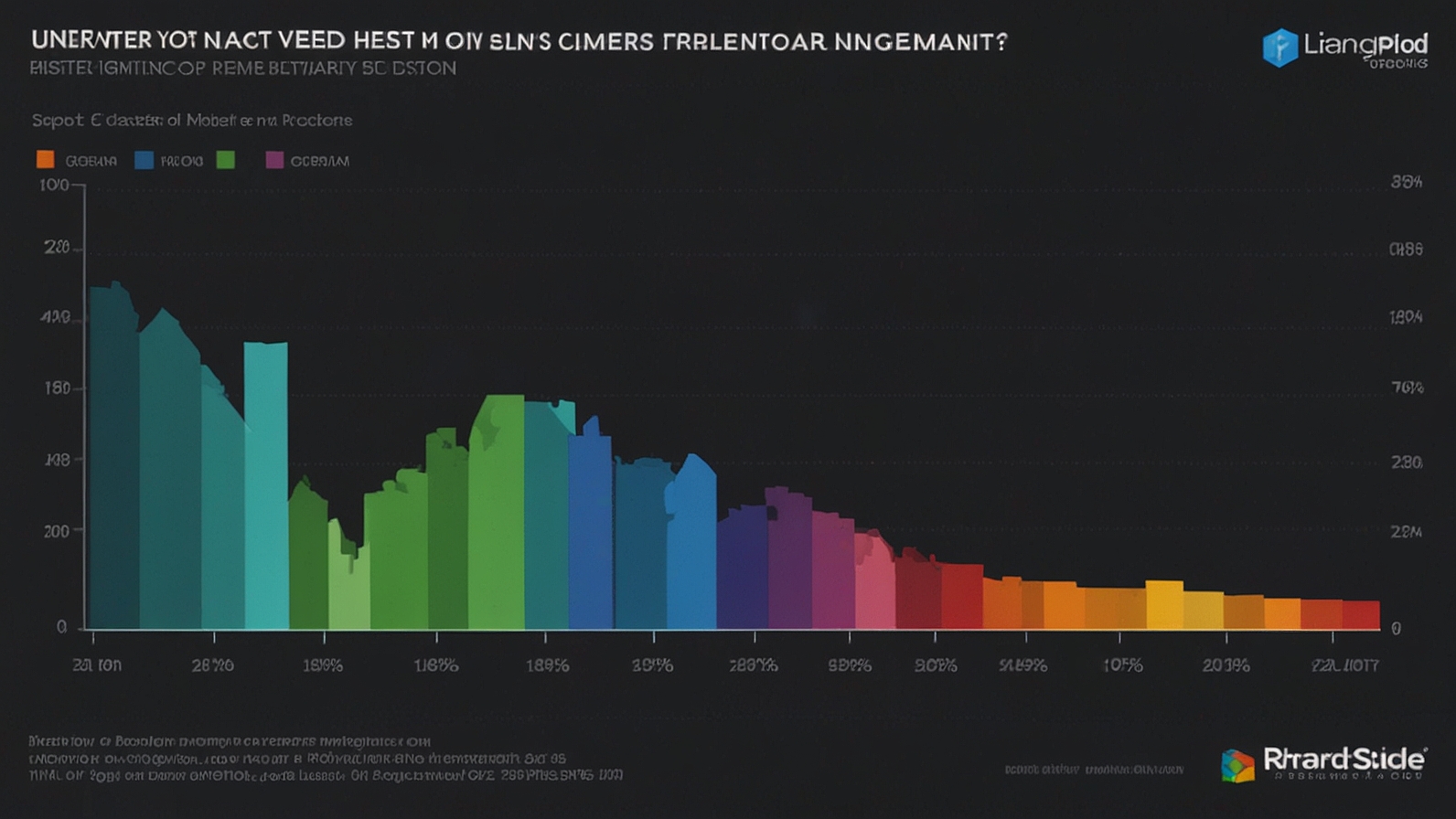Business
Technorozen.com: Demystifying Mutual Funds and SIPs for New Investors

Investing can often seem overwhelming, especially for beginners. But guess what? Mutual funds and Systematic Investment Plans (SIPs) offer a fantastic way to dip your toes into the world of finance without getting bogged down by complexities. According to recent data, nearly 50% of new investors start with mutual funds because of their simplicity and potential for substantial returns. If you’re looking to get started, this article is your go-to guide.
Introduction Technorozen.com
Imagine being able to invest in a wide range of stocks and bonds without needing to become an expert in each one. That’s the magic of mutual funds and SIPs. Mutual funds pool money from multiple investors to invest in diversified portfolios, managed by professionals. SIPs, on the other hand, provide a systematic way to invest small amounts consistently over time. This blog post aims to demystify these investment options, making them accessible and easy to understand for new investors like you.
What Are Mutual Funds?
Definition
Mutual funds are investment vehicles that pool money from multiple investors to buy a diversified portfolio of stocks, bonds, or other securities. When you invest in a mutual fund, you’re essentially buying shares of a collective investment, which is managed by financial experts. These professionals make decisions about where to invest the pooled money, aiming to achieve specific financial goals outlined by the fund.
How They Work
When you put your money into a mutual fund, it gets combined with the money from other investors. This pooled money is then used to buy a variety of assets like stocks, bonds, and other securities. The idea is to create a diversified portfolio that spreads risk. Professional fund managers oversee these investments, making strategic decisions to maximize returns while minimizing risks. By investing in mutual funds, you benefit from professional management without having to make individual investment decisions.
Types of Mutual Funds
Mutual funds come in various types, each designed to meet different investment objectives:
- Equity Funds: These invest primarily in stocks and aim for high growth over the long term.
- Debt Funds: These focus on fixed-income securities like bonds and are ideal for conservative investors seeking stable returns.
- Hybrid Funds: These combine stocks and bonds to balance risk and reward, offering a middle ground between equity and debt funds.
- Index Funds: These aim to replicate the performance of a specific market index, offering broad market exposure with lower management fees.
- Sector Funds: These invest in specific sectors like technology or healthcare, offering targeted exposure but higher risk.
Benefits of Investing in Mutual Funds
Diversification
One of the most significant advantages of mutual funds is diversification. By pooling money to invest in a variety of assets, mutual funds spread the risk across different investments. This means that even if one investment performs poorly, others may perform well, balancing out the overall returns. Diversification helps in reducing the impact of market volatility, providing a more stable investment experience.
Professional Management
Mutual funds are managed by experienced financial professionals who make informed decisions about where to invest. These fund managers conduct thorough research and analysis to select the best securities for the fund’s portfolio. For new investors, having a professional manage your investments removes the burden of making complex financial decisions, allowing you to benefit from their expertise.
Liquidity
Unlike some investment options that lock your money for a fixed period, mutual funds offer high liquidity. You can buy and sell mutual fund shares on any business day at the fund’s net asset value (NAV). This makes mutual funds a flexible investment option, allowing you to access your money when you need it.
Accessibility
Mutual funds are accessible to a wide range of investors, including those with limited capital. With low minimum investment requirements, even small investors can participate and benefit from the advantages of a diversified portfolio. This accessibility makes mutual funds an attractive option for new investors looking to start their investment journey.
Understanding Systematic Investment Plans (SIPs)
Definition
A Systematic Investment Plan (SIP) is a method of investing a fixed amount of money regularly in a mutual fund. SIPs allow you to invest small amounts at regular intervals, such as monthly or quarterly, instead of making a lump-sum investment. This systematic approach helps in building a disciplined investment habit and accumulating wealth over time.
How SIPs Work
SIPs work on the principle of dollar-cost averaging, which involves investing a fixed amount of money at regular intervals, regardless of the market conditions. By doing so, you buy more units when prices are low and fewer units when prices are high. This averaging effect helps in reducing the impact of market volatility, providing a smoother investment experience.
To start a SIP, you need to choose a mutual fund and decide on the amount and frequency of your investments. Once set up, the specified amount is automatically deducted from your bank account and invested in the chosen mutual fund. Over time, these regular investments accumulate, creating a significant corpus.
Benefits of SIPs
Disciplined Investing
SIPs promote disciplined investing by encouraging regular contributions. This systematic approach helps in avoiding the common pitfalls of market timing and emotional decision-making. By investing consistently, you develop a habit of saving and investing, which is crucial for long-term financial success.
Compounding
One of the most powerful benefits of SIPs is the compounding effect. Compounding refers to the process of earning returns on both the original investment and the accumulated returns. By investing regularly and staying invested for the long term, you allow your investments to grow exponentially, maximizing your wealth over time.
Affordability
SIPs make investing affordable by allowing you to start with small amounts. This is particularly beneficial for new investors who may not have large sums of money to invest initially. By starting small and gradually increasing your investment amount, you can build a substantial portfolio without straining your finances.
What Are Mutual Funds?
Understanding Mutual Funds
Mutual funds pool money from many investors to buy a diversified portfolio of stocks, bonds, or other securities. Managed by professional fund managers, these funds aim to provide returns through investments in various sectors. The idea is to create a balanced portfolio that can perform well in different market conditions.
Types of Mutual Funds
There are several types of mutual funds, each catering to different investment goals. Equity funds invest mainly in stocks and aim for high growth. Debt funds focus on stable returns with lower risk by investing in bonds and fixed-income securities. Balanced funds mix both equities and debts to balance risk and return.
Pros and Cons
Mutual funds offer the advantage of diversification, which can spread risk across various assets. They are also managed by professionals, making them suitable for beginners. However, they come with fees and expenses, which can eat into your returns. Additionally, market risks are always present, and there’s no guarantee of returns.
What Are SIPs?
Understanding SIPs
A Systematic Investment Plan (SIP) allows you to invest a fixed amount regularly in a mutual fund scheme. It’s a disciplined way of investing, allowing you to start small and gradually build wealth over time. SIPs are akin to recurring deposits, where you invest regularly, irrespective of market conditions.
How SIPs Work
When you invest via SIP, you purchase units of the mutual fund scheme based on its Net Asset Value (NAV). Over time, this helps in rupee-cost averaging, where you buy more units when prices are low and fewer units when prices are high. This strategy can mitigate market volatility and lead to better long-term returns.
Benefits and Drawbacks
SIPs promote disciplined savings and investing, making them ideal for young investors with fluctuating incomes. They also have the potential for substantial long-term growth. On the downside, SIPs require a longer commitment to see significant benefits, and there’s always the inherent market risk associated with mutual funds.
Comparing Mutual Funds and SIPs
Investment Strategy
In a lump-sum investment in mutual funds, you invest a considerable amount at once. This strategy can yield high returns if the market performs well but also entails higher risk. In contrast, SIPs spread your investment over time, reducing the impact of market volatility.
Risk Management
Lump-sum investments are more volatile, as they depend heavily on market timing. SIPs, however, average out investment costs over time, reducing the impact of market fluctuations. This makes SIPs a safer bet for risk-averse investors or those new to the market.
Suitability
Lump-sum investments are suitable for those with substantial disposable income who can afford to take higher risks. SIPs are ideal for younger investors or those with limited funds, as they allow for gradual investment without the need for market timing.
How to Get Started with Mutual Funds and SIPs
Choosing the Right Fund
Selecting the right mutual fund involves understanding your financial goals and risk tolerance. Equity funds are suitable for aggressive investors looking for high growth, while debt funds are better for conservative investors seeking stable returns. Balanced funds can offer a middle ground.
Setting Up an SIP
Setting up an SIP is straightforward. Choose a mutual fund scheme that aligns with your goals, decide on the amount to invest regularly, and link your bank account for automatic deductions. Most mutual fund companies allow you to set up SIPs online with minimal paperwork.
Monitoring and Adjusting
Regularly monitoring your investments is crucial. Keep an eye on the performance of your mutual funds and adjust your SIP amounts or switch funds if necessary. Periodic reviews can help ensure that your investments remain aligned with your financial goals.
Common Myths and Misconceptions
Myth 1: Mutual Funds Are Only for Wealthy Investors
Contrary to popular belief, mutual funds are accessible to everyone. Many funds allow you to start with a minimum investment as low as $500. SIPs make it even easier, often requiring as little as $50 per month.
Myth 2: SIPs Are Not Flexible
Another common misconception is that SIPs are rigid. In reality, SIPs offer flexibility in terms of investment amount and tenure. You can increase or decrease your SIP amount or even pause it temporarily if needed.
YOU MAY ALSO LIKE
Investing in Technorozen Mutual Funds: A Beginner’s Guide to Financial Growth
Conclusion
Investing in mutual funds and SIPs offers a practical and effective way for new investors to enter the world of finance. With the benefits of diversification, professional management, liquidity, and accessibility, mutual funds provide a robust investment option. SIPs, on the other hand, promote disciplined investing, harness the power of compounding, and make investing affordable.
By understanding these investment options and leveraging their advantages, you can set yourself on the path to financial success. Remember, the key to successful investing is patience, discipline, and continuous learning. If you’re ready to take the next step in your investment journey, consider exploring the offerings at technorozen.com, where expert guidance and curated investment options await.
Happy investing!
FAQs
1. What are mutual funds?
Mutual funds are investment vehicles that pool money from multiple investors to buy a diversified portfolio of stocks, bonds, or other securities.
2. How does a SIP work?
A Systematic Investment Plan (SIP) allows investors to make regular, fixed investments in a mutual fund, helping to build wealth over time through disciplined investing.
3. Can I withdraw my money from a mutual fund anytime?
Yes, most mutual funds offer high liquidity, allowing investors to buy or sell shares any business day at the fund’s net asset value (NAV).
4. Are mutual funds safe?
While mutual funds diversify risk across various assets, they are still subject to market risks. It’s essential to research and choose funds that align with your risk tolerance.
5. What is the minimum amount required to start a SIP?
The minimum amount to start a SIP varies by fund, but it can be as low as $10 to $25, making it accessible for new investors.
Business
Avoidable errors in long-distance office moves

Long-distance office relocations require careful planning, logistics, and coordination. As with planning any event, mistakes are unavoidable, and in this case even minor errors can escalate into major problems that are difficult or costly to fix once the move is underway.
While many challenges are inherent to moving operations, several mistakes can be prevented through careful preparation and professional oversight https://bestmovescalgary.ca/long-distance-moving-services/. To better prepare for the relocation it is better to keep in mind these avoidable mistakes:
- Failing to catalog office equipment, furniture, and supplies accurately can result in lost items, missing parts, or duplicate shipments. This issue is particularly problematic when sensitive technology, specialized furniture, or essential documents are involved. Creating a complete, detailed inventory before the move allows movers and managers to track every item, reducing the risk of permanent loss or replacement costs.
- Computers, servers, and audiovisual equipment should be packed properly as they are highly sensitive to shock, temperature fluctuations, and moisture. Using inappropriate packing materials or skipping protective measures can result in hardware failure, data loss, or costly repairs. Professional movers mitigate these risks by supplying specialized crates, anti-static packaging, and cushioning techniques designed specifically for delicate office technology.
- Disorganization of critical documents also presents major challenges. Legal files, financial records, and personnel information often require secure, labeled, and traceable transport. Failing to properly classify and store these documents can result in misplaced documents, unauthorized access, or delays in reestablishing operational functionality. Advance planning, including the use of secure containers and digital tracking systems, can help prevent these issues entirely.
- Long-distance moves often require navigating unfamiliar highways, bridges, and urban streets. Trucks may encounter low clearance, narrow passages, or weight restrictions. Without pre-assessment and route optimization, vehicles may be delayed or forced to take a different route, which adds time and cost. Selecting a route based on truck dimensions and traffic patterns is a preventive measure that avoids such complications.
- Errors in furniture disassembly and reassembly are also difficult to rectify. Modular office furniture, cubicles, and conference tables require proper disassembly to prevent structural damage. Incorrect handling may result in warped panels, stripped screws, or compromised stability. Documented procedures and professional handling ensure that items arrive intact and operational at the new location quickly.
- Office relocations can disrupt workflows if insufficient time is allocated for unloading, setting up, and reconnecting technology. Misjudging these timelines can delay business operations for days. To prevent this, detailed scheduling, staged planning, and coordination with movers are required to maintain operational continuity.
Each of these mistakes is largely preventable through foresight, preparation, and the expertise of professional movers. Addressing these issues in advance ensures a smoother, safer, and more efficient long-distance office relocation.
READ ALSO: Moving Services in Melbourne: A Comprehensive Guide
Business
What Are Same-Day Settlement Loans? Everything You Need to Know

When navigating the complexities of a lawsuit, the financial burdens can quickly become overwhelming. Between mounting medical bills, essential living expenses, and the potential loss of income due to time off work, the waiting period for a settlement check can seem interminable and create immense stress. This is precisely where same-day settlement loans offer a vital solution.
If you find yourself in urgent need of rapid access to cash while your legal case is still pending, this comprehensive guide is designed to provide you with all the crucial information you need. We will delve into every aspect of these unique financial tools, from a detailed explanation of how these loans function to an exploration of their significant benefits, and what you can expect throughout the entire process. Our aim is to demystify same-day settlement loans, empowering you with the knowledge to make informed decisions during a challenging time.
What Is a Settlement Loan?
A settlement loan (also known as pre-settlement funding, lawsuit funding, or litigation financing) gives you a cash advance based on the expected value of your pending lawsuit. That means you can get money now to help cover your expenses while your case is still being resolved. Once your case settles or you win in court, you repay the loan from your settlement proceeds.
A settlement loan, often referred to as pre-settlement funding, lawsuit funding, or litigation financing, provides individuals with a crucial financial lifeline in the form of a cash advance. This advance is calculated based on the anticipated value of their pending lawsuit, offering a vital solution during what can often be a protracted and financially challenging legal process.
Advantages
The fundamental advantage of this type of funding is that it enables plaintiffs to access money immediately. This cash infusion can be used to cover a wide array of expenses that inevitably arise while a legal case is still in the process of being resolved. These expenses might include, but are not limited to, daily living costs such as rent or mortgage payments, utility bills, groceries, and transportation. Furthermore, it can help plaintiffs manage medical bills and ongoing treatment costs related to their injuries, especially if their lawsuit stems from a personal injury claim. Without such funding, many plaintiffs might feel pressured to accept a low settlement offer prematurely due to financial duress, even if a larger award is likely with further legal proceedings.
The structure of a settlement loan is designed to align with the outcome of the legal case. Once a settlement is reached, or a favorable judgment is secured in court, the loan is repaid directly from the proceeds of that settlement or award. This arrangement is non-recourse, meaning that if the plaintiff loses their case and receives no settlement or judgment, they are generally not obligated to repay the loan. This characteristic significantly reduces the financial risk for the plaintiff, as the funding company assumes the risk of the lawsuit’s outcome.
In essence, settlement loans empower plaintiffs to navigate the legal system with greater financial stability, allowing their legal teams to pursue the best possible outcome without the added pressure of immediate financial hardship. It ensures that justice is not compromised by economic constraints, providing a bridge between the initiation of a lawsuit and its ultimate resolution.
Common types of cases that may qualify include:
- Personal injury
- Wrongful death
- Slip and fall accidents
- Medical malpractice
- Product liability
Same-Day Settlement Loans vs. Traditional Loans
Unlike traditional bank loans, same-day settlement loans don’t require:
- A credit check
- Proof of income
- Employment verification
Funding decisions are based solely on the strength and estimated value of your case; not your financial history.
Best of all, approval and funding can often happen within hours, not days or weeks.
READ ALSO: Payday Loans and Your Credit Score: Separating Myth from Fact
Why Choose a Pre-Settlement Loan?
A pre-settlement loan can help you cover:
- Medical bills
- Legal fees
- Rent and utilities
- Everyday living expenses
This financial relief allows you and your attorney the time to fight for the maximum settlement, without feeling pressured to accept a low offer just to make ends meet.
Before choosing a lender, take time to compare companies, interest rates, and terms. A reputable lender will offer transparent rates and a free case evaluation before you sign anything.
How Much Does a Lawsuit Loan Cost?
There are no upfront fees or out-of-pocket costs.
The total repayment amount (including interest) is clearly outlined in a non-binding agreement, and payment is only due if you win your case.
What Happens If You Lose Your Case?
If you lose your lawsuit, you generally owe nothing.
That’s because settlement loans are non-recourse, meaning the lender assumes the risk. You only repay if you receive compensation.
Other Benefits of Same-Day Settlement Loans
- No Credit Required: Approval is based on your case, not your credit score.
- Fast Access to Cash: Many applicants receive funding within 24 hours.
- Negotiation Power: You can take the time you need to negotiate a fair settlement — without financial stress dictating your decisions.
How Do Settlement Loans Compare to Payday Loans?
While both options provide quick cash, payday loans often come with extremely high interest rates (sometimes over 400–500% APR). They also require proof of income and must be repaid from your next paycheck; often trapping borrowers in a cycle of debt.
In contrast, lawsuit loans are tied to your case’s outcome, not your income. You don’t repay until you win.
Secured vs. Unsecured Loans
- Secured loans (like auto or home loans) use collateral such as your car or property, which the lender can seize if you fail to pay.
- Unsecured loans have no collateral but often carry higher interest rates, and may involve hidden fees.
Settlement loans are a unique form of unsecured financing that’s risk-free for the borrower because repayment depends solely on your legal win.
Tips for a Successful Lawsuit
- Hire an experienced attorney who specializes in your case type.
- Be patient. Legal cases often take longer than expected.
- Cooperate with your attorney on discovery and document requests.
- Attend settlement conferences to understand your case’s potential value.
- Prepare for depositions and always present yourself professionally in court.
Get Fast Legal Funding Today
If you’re struggling to pay bills while waiting for your settlement, same-day settlement loans can give you the breathing room you need to stay financially stable and focused on your recovery.
Contact us today to learn more about our quick, risk-free settlement funding options. Get the cash you need, when you need it most.
YOU MAY ALSO LIKE: Instant Loans vs. Traditional Loans: Which One Is Right for You?
Business
Unlock Engagement: How Video&a Transforms Business Content

What if you could turn a passive viewer into an active participant with the click of a button? Imagine a potential customer watching your product demo, and right at the moment they wonder about pricing, a subtle prompt appears: “Curious about our plans? Ask now!” They type their question and get an instant, clear answer from the video itself, without ever hitting pause. This isn’t a glimpse into the distant future of marketing; it’s the powerful reality of Video&a, a revolutionary approach that’s redefining how businesses communicate.
Gone are the days of one-way, linear video content. Today’s audiences crave interaction and personalization. They don’t just want to be talked at; they want a conversation. This is where Video&a shines—a dynamic, AI-assisted strategy that embeds interactive Q&A directly into the video experience. It’s like giving every single viewer their own personal guide, making your content more discoverable, memorable, and effective across every touchpoint of your business.
What Exactly Is Video&a? Breaking Down the Buzzword
Let’s demystify this term. At its core, Video&a is a content methodology that integrates interactive question-and-answer functionality within a video player. It uses artificial intelligence to make this process seamless and scalable.
Think of it like this: a standard video is a monologue. It’s a speaker delivering a message to a silent audience. Video&a, however, is a dialogue. It’s a two-way street where the viewer can steer the conversation, digging deeper into the topics that matter most to them, right when their curiosity is piqued.
How It Works in Practice:
A company launches a new software feature and creates a tutorial video. Using a Video&a platform, they can:
- Pre-load common questions: The AI is fed a list of FAQs and their answers beforehand.
- Enable live interaction: Viewers can type questions in a sidebar as they watch.
- Receive instant AI-powered answers: The AI scans the query and instantly either pulls a timestamp from the video that answers it, displays a text answer, or even generates a short spoken response using text-to-speech.
- Create a living FAQ: The system learns from new questions, constantly improving its knowledge base for future viewers.
This transforms a static video into an evergreen, interactive resource that becomes more valuable over time.
Why Your Business Needs to Embrace Interactive Video Now
The data doesn’t lie. Interactive content consistently outperforms passive content. But why is Video&a such a game-changer? The benefits spread across marketing, sales, support, and training.
Skyrocket Engagement and Dwell Time
Search engines, especially Google and YouTube, love content that keeps users engaged. The longer a visitor stays on your page (dwell time), the more favorably algorithms rank your content. Video&a is incredibly effective at this. Instead of clicking away after 30 seconds, viewers are compelled to stay, ask questions, and explore the content more deeply. This sends powerful positive signals to search engines, boosting your organic discoverability.
Dramatically Improve Learning and Retention
For e-learning and internal training, Video&a is a powerhouse. The Ebbinghaus forgetting curve shows we forget most of what we learn within days. Interactive video combats this by transforming learners from passive recipients into active participants. This process of inquiry and immediate feedback reinforces knowledge, dramatically improving information retention and application. It’s the difference between listening to a lecture and having a one-on-one tutoring session.
Scale Personalized Customer Support
Customer support teams are often overwhelmed with repetitive queries. Imagine deflecting a significant portion of these tickets without lifting a finger. A well-built Video&a system integrated into your help center can do just that. A viewer watching a setup guide can ask, “What do I do if the blue light is blinking?” and get an immediate, accurate answer. This provides 24/7 support, reduces ticket volume, and empowers customers to find solutions faster.
Generate Rich Data and Consumer Insights
Every question asked is a priceless data point. Video&a platforms provide analytics that reveal exactly what your audience is curious about, what they’re confused by, and what information is missing from your content. This is pure gold for your product, marketing, and content teams, allowing you to refine your messaging, develop new content, and ultimately build better products that serve your customers’ real needs.
Putting Video&a to Work: Real-World Applications
This strategy isn’t just theoretical; it’s delivering real results for forward-thinking businesses right now.
Marketing & Sales: The Interactive Product Demo
Startup “SaaSify” integrated Video&a into their main product demo video. Instead of a generic tour, viewers could ask specific questions like, “Does this integrate with Slack?” or “Can I see the reporting dashboard?” The AI provided concise answers with clips from other videos that showed exactly that. The result? A 40% increase in demo-to-trial conversion率和 and a significant drop in “basic question” sales calls, allowing their reps to focus on high-value prospects.
E-Learning: The Never-Tiring Teaching Assistant
An online course platform, “LearnSphere,” used Video&a within their lesson videos. Students could ask for clarifications on complex topics without interrupting the flow of the lesson. The platform found that courses with interactive Q&A saw completion rates jump by 60% and final exam scores improve by an average of 25%. The instructors also used the question log to identify tricky concepts and create new supplemental mini-lessons.
Customer Support: The 24/7 Answer Engine
“GadgetGenius,” a consumer electronics company, embedded Video&a into their troubleshooting video library. Customers could describe their issue in their own words and be guided to the exact moment in a video that solved it. This led to a 35% reduction in support tickets related to common setup issues and a marked improvement in customer satisfaction scores, as users appreciated the instant, helpful support.
Your Roadmap to Implementing Video&a (Without the Overwhelm)
Getting started with this strategy is more accessible than you might think. You don’t need a Hollywood production studio or a team of AI engineers.
1. Start with Your Most Valuable Content
Audit your existing video library. Which video answers the most common questions? Which one has the highest traffic? Which one generates the most support tickets? Your best-performing “hero” content or your most-viewed tutorial is the perfect candidate for a Video&a makeover. Repurposing existing content is the most efficient way to start.
2. Choose the Right Tool for Your Needs
The market for interactive video tools is growing rapidly. Look for platforms that offer:
- Easy integration with your website (often just a snippet of code).
- AI capabilities that can handle natural language questions.
- Strong analytics to track questions, engagement, and performance.
- A user-friendly interface for you to input questions and answers.
3. Build Your Knowledge Base
This is the most crucial step. Work with your sales, support, and product teams to compile a list of every Frequently Asked Question they receive. Write clear, concise answers for each one. For longer videos, you can even timestamp specific sections that answer common questions. The richer your initial knowledge base, the smarter your Video&a experience will be from day one.
4. Promote and Iterate
Once your first interactive video is live, promote it! Let your audience know they can now “ask questions directly within the video.” Monitor the questions that come in. You’ll quickly see what’s working and what’s missing. Use these insights to continually update and expand your Q&A database, making the system smarter and more effective every week.
3 Actionable Tips to Try Today
Ready to dip your toes in the water? Here’s how to start immediately.
- Audit One Key Video: Pick one high-value tutorial or demo video. List the top 5 questions a viewer might have at specific timestamps.
- Script Simple Answers: Write friendly, one-sentence answers to those questions. Avoid jargon.
- Explore One Tool: Spend 30 minutes researching a single Video&a platform (many offer free trials or demos). See how easy it is to upload a video and input your Q&As.
The Future of Content is a Conversation
Video&a represents a fundamental shift from broadcast to conversation. It’s a strategy that respects the viewer’s intelligence and curiosity, providing value on their terms. By meeting your audience where they are and answering their questions in the moment, you build trust, authority, and lasting engagement. In a crowded digital world, that’s the ultimate competitive advantage.
The question is no longer if interactive video is valuable, but how quickly you can implement it to start reaping the rewards. What’s the first question you’d want your customers to be able to ask?
Share your thoughts and ideas in the comments below!
You May Also Read: The Silent Shift: How Lillienu is Rewriting the Rules of Business Operations
FAQs
Q: Is Video&a expensive and technically difficult to implement?
A: Not necessarily! Many modern SaaS platforms are designed for marketers and content creators, not developers. They often work on a subscription model and can be integrated with a simple copy-paste of code, similar to adding a YouTube video to your site.
Q: Will AI answers feel robotic and turn viewers off?
A: This is a common concern. The key is in the setup. You train the AI with your own brand’s voice and tone. By writing answers that sound human and helpful—and using features that link to specific video clips—the experience feels incredibly responsive and personal, not robotic.
Q: Can Video&a work with live video streams?
A: Absolutely. Many platforms offer live stream integration, allowing moderators to answer questions in real-time during a webcast or live event. This combines the power of live engagement with the organized structure of a Q&A.
Q: What kind of videos work best for this approach?
A: Tutorials, how-to guides, product demos, training modules, and recorded webinars are all perfect candidates. Any video designed to explain or teach something is ideal for an interactive Q&A layer.
Q: How does this affect video SEO?
A: It significantly boosts it. The increased dwell time, lower bounce rates, and user engagement are all strong positive ranking factors. Furthermore, the text-based Q&A creates a rich layer of keyword-rich content that search engines can crawl, making your video discoverable for even more questions.
-

 Education1 year ago
Education1 year agoMastering Excel: Your Comprehensive Guide To Spreadsheets And Data Analysis
-

 Tech1 year ago
Tech1 year agoHow To Choose The Best Forex Trading Broker?
-

 Business2 years ago
Business2 years agoExploring the Rental Market: Properties for Rent in Malta
-

 Blog1 year ago
Blog1 year agoArab MMA Fighters Shine Bright: Meet the Champions of PFL MENA
-

 Travel1 year ago
Travel1 year agoExperience the Best Desert Safari Dubai Offers!
-

 How-To Guides2 years ago
How-To Guides2 years agoComprehensive Guide to Cockwarming: Enhancing Intimacy and Connection
-

 Home Improvement2 years ago
Home Improvement2 years agoEco-Friendly Round Rug Options for Sustainable Living in NZ
-

 Fashion2 years ago
Fashion2 years agoBlack Magic: The Elegance and Sophistication of Ultimate Homecoming Dresses in Black








